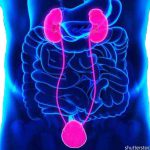Results for the Ischemia Trials: To Intervene or Not to Intervene
16 November 2019
| It is unknown whether a routine invasive approach of cardiac catheterization and revascularization offers incremental value over a conservative approach of optimal medical therapy (OMT), with catheterization reserved for failure of medical therapy in patients with stable ischemic heart disease (SIHD) and moderate or severe ischemia. | |
| Results: 5179 participants were randomized. Participants were 64 years old (median), 23% women, 34% 1726 nonwhite, 16% Hispanic, 41% diabetic, and 90% with a history of angina. The qualifying stress test modality was stress imaging in 3909 (75%); the remainder were nonimaging ETTs. Core laboratories judged that the trial-required level of ischemia was met in 85% of randomized participants. Among the 3912 of 5179 randomized participants who underwent coronary computed tomography angiography, 79% had multivessel CAD and 87% had left anterior descending (LAD) stenosis (proximal in 47%). Primary and secondary clinical outcomes will be presented. Conclusion: |
|
| Author(s) | Source |
| Hochman JS | American Heart Association, Scientific Sessions, International Study of Comparative Health Effectiveness With Medical and Invasive Approaches: Primary Report of Clinical Outcomes, November 16, 2019 |
| This is a post of a scientific or business information. The information given here is checked thoroughly by “Implant-Register”. However we can´t be responsible for the content. Contact the publisher, if you have questions. You may inform us about changes of the information to improve the Register. | |
| Comments: n/a let us know |
|
Find NEWS and PUBLICATIONS here according to your interests or use the search box.









